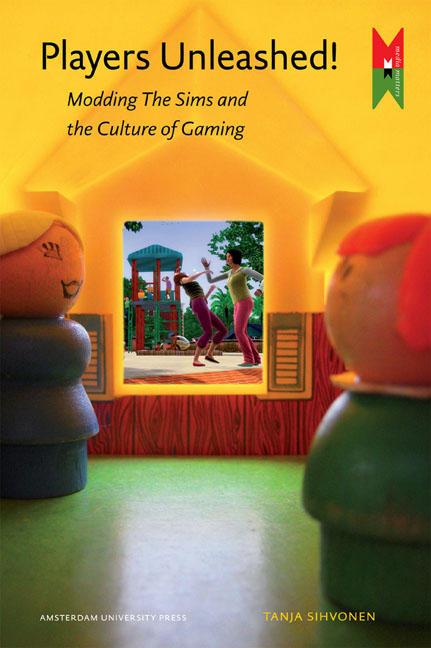III - Dynamics of Modding
Published online by Cambridge University Press: 22 January 2021
Summary
Categorising modding practices
What makes computer games specifically interesting pieces of digital code besides the actual gameplay is their inherent potentiality for malleability and alteration. At present, game software is structured and interconnected according to a specific logic: there is the game engine that controls everything that is to be experienced by the player by ordering the hardware to generate the appropriate images, sounds and movements, and mediating the content through designated interfaces such as the screen and speakers. The game engine thus renders the in-game world, its characters and objects, lets the story unfold according to the storyboard and the player's input, allows music and sound to be heard at the right moment - and it does all of this out of game data that is stored in files and libraries. This data, consisting of components such as 3D meshes, textures (surfaces) for objects and characters, scripts and rulesets, functions like raw material out of which the engine ‘spins its yarn’ for the player to experience in real time as the game is played. The fact that the contents of these data libraries can be altered makes games moddable (Knorr 2007, 3-4). Practically speaking, game modding takes place on the level of altering and tinkering with game data files as the access to the game engine is not normally granted to players.
Most of the theoretical notions on modding are structured around the level of adding game data. One of the most basic categorisations is the one provided by David B. Nieborg and Shenja van der Graaf (2008), as they make a differentiation in their study of total conversion (TC) mods between the fundamental elements of the games and mods as extensions of them, in other words, to ‘proprietary engines’ that are under corporate control. In their study, this is termed as the techno-economic dimension of modding and put under ideological scrutiny, as the TC modding is considered to entail free labour and unpaid development work done by players, granting benefits to the industry (see also Postigo 2003). Other, more general and perhaps more neutral terminology is used by digital media theorists such as Espen Aarseth (1997) and Joost Raessens (2005), who term modding as ‘addition’ or ‘construction’ of new game elements.
- Type
- Chapter
- Information
- Players Unleashed!Modding The Sims and the Culture of Gaming, pp. 87 - 122Publisher: Amsterdam University PressPrint publication year: 2012



